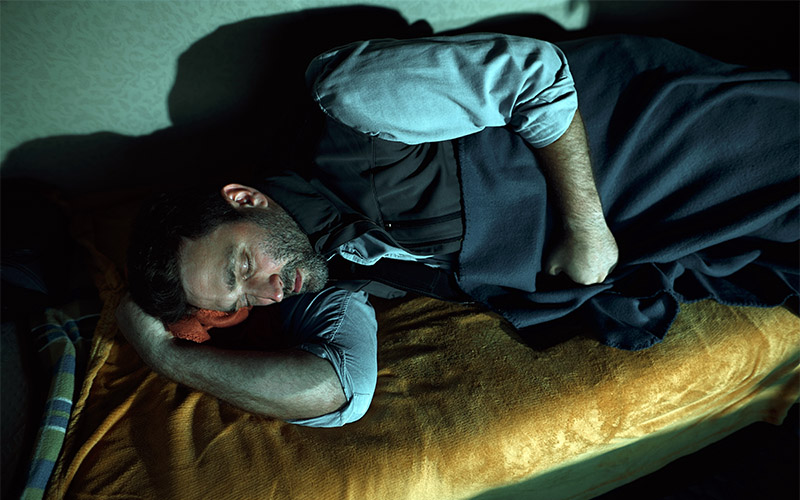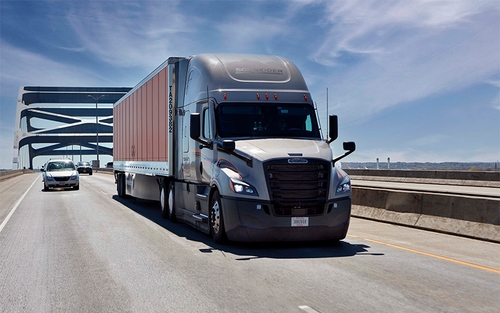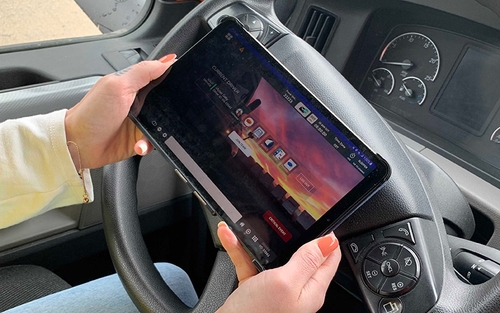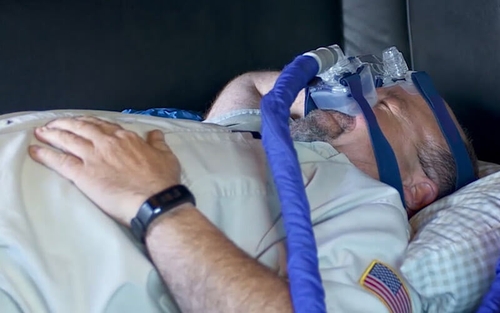Where do truck drivers sleep? And other sleep-related questions


By The Schneider Guy
Unless you’re a truck driver who gets home every day, you’ll need to master the art of sleeping in a truck sleeper cab.
Here are some of the most common questions and answers about sleeping in a semi-truck so you can prepare yourself for sleeping while out on the road.
Where do truck drivers sleep?
Where a truck driver sleeps depends on what kind of driving job they have.
- Local drivers sleep in their own beds, since they get home every day.
- Over-the-road and regional drivers, however, sleep in their trucks.
More specifically, they sleep in sleeper cabs (or berths), extensions of a semi-truck's regular cab that include a bed and other amenities. Though it ultimately depends on the make and model of the truck, some other features that you may find in a sleeper cab include:
- Built-in storage and a desk.
- A built-in refrigerator.
- Space for a microwave.
- Auxiliary Power Units (APUs) and/or bunk heaters.
- Power inverters and outlets.
- Get more familiar with sleeper cabs by checking out this tour of one of Schneider’s 2021 freightliners.
What size bed is in a semi truck?
Typically, the mattress found inside of a semi-truck is twin-size. However, the mattress can vary a few inches in both length and width based on the truck’s make and model.
Tractors used by team drivers have bunked twin-sized beds.
Do truck drivers sleep on the side of the road?
No, truck drivers should not sleep on the side of the road. Not only can drivers get ticketed for doing this, but it can also lead to accidents for the driver and other motorists.
Drivers who sleep in their trucks usually park at either:
- A company facility.
- A truck stop.
- A rest area.
- A customer’s facility, if allowed.
No matter where you end up parking, making sure you’re safe while you sleep is essential. Some general tips to follow when sleeping in your truck include:
- Double-check that all doors are locked.
- Make sure your phone is fully charged and have it with you if you leave the truck.
- Try to park near other drivers.
- Scan the area for any suspicious activity before parking.
- Familiarize yourself with your surroundings in case you need to exit the truck or area suddenly.
Do truckers sleep with their trucks on?
While some drivers with older trucks will leave their truck running while they’re stopped (a practice known as idling), recent upgrades to semi-trucks have made this somewhat unnecessary.
The main reasons a driver would choose to leave their truck’s engine on are to:
- Regulate the temperature inside the cab when it’s extremely hot or cold outside.
- Prevent the battery from dying.
- Keep the engine warm for their next trip.
At the end of the day, though, idling can be costly and seen as an inefficient use of fuel. Some states even have regulations on idling due to environmental concerns. Fines for excessive idling can range anywhere from hundreds to thousands of dollars.
If they aren’t supposed to idle, how do truckers stay warm at night?
Truck drivers stay warm while sleeping by using specific equipment and technology within trucks that helps regulate the temperature in a more cost-efficient way. The two main examples are:
- APUs: Many newer semi-trucks come with Auxiliary Power Units (APUs) to keep drivers comfortable while in the sleeper berth without having to idle the engine. Older APU models are typically diesel-powered while newer ones are usually battery-powered.
- Bunk heaters: Truckers who drive older trucks that are not equipped with APUs typically use bunk heaters to keep warm while they sleep. Bunk heaters run on diesel to heat the inside of a semi-truck.
How long do truck drivers have to sleep?
According to Federal Motor Carrier Safety Association (FMCSA) Hours of Service rules, truck drivers can drive a maximum of 11 hours per day. That means drivers have the rest of the day to eat, relax or sleep.
According to the CDC, adults ages 18-60 need seven or more hours of sleep each night. However, each individual driver needs to determine how much sleep they need to safely perform their job duties.
Want to get better sleep on the road?
Check out our collection of sleep-related blogs to help improve your sleep and stay safe on the road.

Schneider Guy loves the "Big Orange." He's passionate about the trucking industry and connecting people to rewarding careers within it. He's been the eyes and ears of our company since our founding in 1935, and he's excited to interact with prospective and current Schneider associates through "A Slice of Orange."



